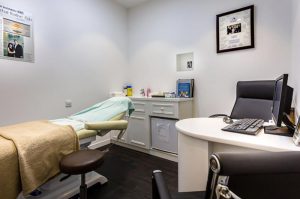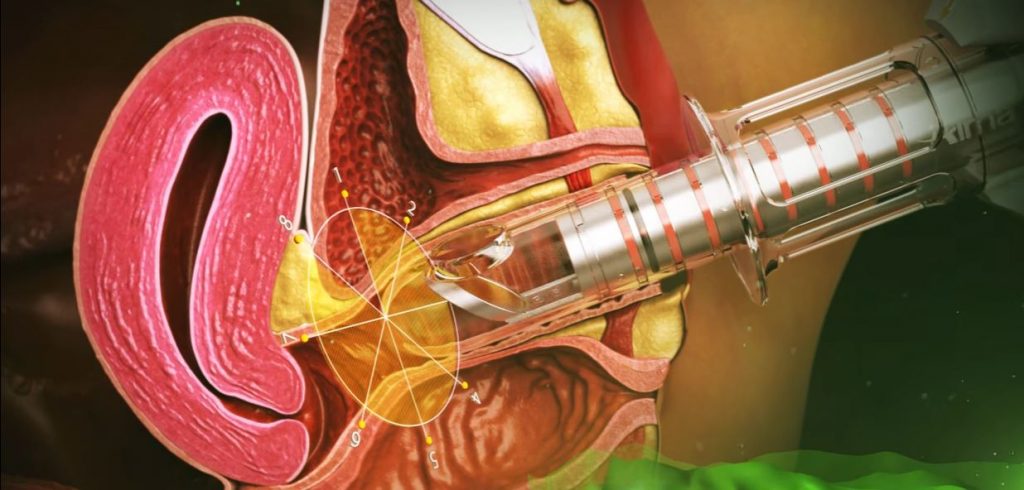Nov 2 2017
FemiLift helps rediscovering your body and sexuality after cancer
02 Nov
Posted at08:38h
in
Blog,
Feminine health
Cancer- this illness has touched almost everyone's lives- Who of us hasn't had a relative dealing with it?
October was the Breast Cancer Awareness Month. We have decided to shed some light on the issues women deal with after they have recovered. While there have been substantial advancements in medicine and technology there are still many troubling side effects that follow most of the conventional treatments, especially for women. Just when these brave women think the battle is over, they are proven wrong when they face the "collateral damage" and it's devastating effect on their emotional and sexual well-being.
The Symptoms
Chemo and radiotherapy, and also hormonal therapies, may cause skin rashes, vaginal dryness and other side effects that may undermine cancer survivors' sexual life. In essence, some of these women, those who are well below the expected age, experience premature menopause. However, solutions do exist, starting from a correct choice of detergents and underwear to a laser that stimulates collagen production. Not only the skin, but even genital organs and consequently one's sexuality may be subject to the side effects of Oncological therapies on patients' bodies.
Disturbances such as vaginal atrophy, incontinence, difficulty or impossibility in having sexual intercourse are frequent consequences of female tumor treatment with hormone therapy, chemotherapy, and radiotherapy. Yet, this is not a “toll” that needs to be paid without even trying to put up a fight. This topic was discussed during the 6th edition of the Scientific Board “The Rediscovered Body”, composed by dermatologists who have been working for several years on the damages caused by Oncological therapies.
The role of the dermatologist
When dealing with
sexual disturbances the first physician that comes to mind is the gynecologist. However, when these disturbances are the consequence of a tumor and its relative therapies, women need to take a wider perspective, given that oftentimes they do not have the courage of talking about these problems with an oncologist. According to the Italian Association of Medical Oncology, only 10% of the patients speak to their doctor about this. “As dermatologists, we're often called upon for specific problems: atrophy, the appearance of symptoms such as itching, stenosis, ease of inflammation, difficult recovery following local infections (candidiasis, trichomonas, herpes)” – says Maria Concetta Pucci Romano, specialist in dermatology and president of the Board The Rediscovered Body. “Furthermore, this area can also be the site of dermatological illnesses: psoriasis, atopic dermatitis, seborrheic dermatitis, atrophic lichen sclerosis.”
Effects of aromatase inhibitors
In a very high percentage of cases, women with cancer and subject to chemotherapy during their fertile age suffer early menopause. Not only that: “In case of hormone-dependent breast cancer, in addition to traditional chemo and radiotherapy, a therapy with drugs called aromatase inhibitors is prescribed in order to increase the survival rate and prevent the risk of metastasis. These drugs destroy all deposits and production of estrogens, eliminating their presence” – explains Pucci Romano. “This therapeutic ‘umbrella’ undoubtedly saves lives and needs to be administered over the years, but for women aromatase inhibitors are an insidious and wicked enemy: androgenetic alopecia, dry skin, body hair growth and genital mucosal disruption are some of the most frequent side effects, and even arthralgia, ease of losing weight, mood disorders. And this occurs in situations where the patient is very far from old age” continues the specialist.
What types of disturbances do these cancer survivors suffer from?
According to the data provided by the Italian Association of Medical Oncology, 70% of women with breast cancer suffer from vaginal atrophy when subject to hormonal therapies used to fight the illness. This problem affects all of the patients operated for ovarian cancer due to the removal of the organ. Even chemotherapy and radiotherapy can determine these kinds of problem. “Chemotherapy” – explains
Gabriella Fabbrocini, associate professor of dermatology and venereology at the University of Naples Federico II and head of the outpatient clinic ‘The Rediscovered Body’- “stimulates xerosis, which means dry and arid skin, and this occurs both at the level of the skin and genital mucus.
In women in menopause operated for breast tumor, whose hormone level is altered, this symptom becomes much more evident with vulvodynia and limitation of their sexual life. In men, and also in women, there may be fungal or bacterial fractions” concludes Fabbrocini. Skin rashes, in the same way as it occurs on the face and body, may also appear in genital areas. “In the case of Egfr inhibitors” – explains Fabbrocini – “the rash can be localized, even if occasionally, at the genital level and in the hairy zones of this area. The most annoying symptom is itching accompanied by the fear of showing intimate areas which are not intact to the partner, which may invalidate a person's sexual life.”
The suggested solution - collagen stimulation by CO2 laser treatment
Until now, the only therapies available were hormonal treatments. These cannot be used on women diagnosed with tumor given the high risk of relapse of the illness. Other solutions are lubricant gels, which are only effective in the short term. However, today new instruments are available such as a laser capable of effectively treating vaginal atrophy, the condition which occurs in more than 50% of the women suffering from menopause and, most of all, in Oncological patients. Lasers are considered very effective because they directly stimulate the production of collagen, which during menopause hardens and loses thickness.
How does collagen growth help?
“The collagen regains the capacity of producing mucus and the vagina returns to its original elasticity and lubrication as before menopause,” explains
Paolo Scollo, director of gynecology at the Cannizzaro Hospital of Catania. A particular instrument, a CO2 laser such as the FemiLift, is also suitable for Oncological patients because it has a smaller probe than the one used for transvaginal ultrasound scans. Three sessions are needed, once every month, lasting about 10 minutes each. “The new application field of these tools” – continues Scollo – “is indeed with these patients, oftentimes young and suffering from menopause induced by surgical intervention, chemotherapy, hormonal therapy or radiotherapy.”
The clinical study
A pilot study was carried out at the Cannizzaro Hospital of Catania on 35 oncological patients to evaluate the production of collagen after laser treatment: "The
study, published in the Journal of Clinical Oncology, has demonstrated that thanks to laser treatment, collagen thickness tripled. In addition, we conducted a survey of patients after 6 months and a year and a half in order to assess their degree of satisfaction. The satisfaction score reported was 80% and it was also confirmed by the results of the biopsies carried out,” continues Scollo. This study was the starting point of the national campaign ‘Femilift for the quality of life of oncological patients’ presented this past March at the Ministry of Health.
Another application field of this laser is in vulvar dystrophy, in particular with old and oncological patients: “It is a condition which causes burning sensations, itching, insensitive skin and the laser works very well in this case,” states Scollo. Another international study on the effectiveness of laser in this field is currently undergoing and being led by the Cannizzaro Hospital of Catania. The departments of gynecology of the Tel Aviv and Buenos Aires hospitals also participate in this research.”
Other important tips for cancer survivors to consider
The right detergents
However, what can be done during everyday life in order to alleviate these disturbances? “Cleaning the area with delicate soaps free of parabens, silicones and useless disinfectants which may further alter the local balance,” suggests
Pucci Romano. “Cleansing oils, moisturizing, with fatty components of vegetable origins are good (jojoba, karite, pumpkin, olive oil) and also the ones derived from chemical syntheses as long as they are green (glycerin, cholesterol, glucose, rhamnose, lactic acid), which leave a soft and moisturized mucous.”
What to avoid
Lubricant gels that need to be applied internally have led to the growth of a market full of products that promise hydration, lubrication, eased sexual intercourse. However, do they really work? “The majority of them are a triumph of bad chemistry (Vaseline, Paraffin, PEG and many other components),” warns
Pucci Romano, who also adds, “As president of Skineco, a scientific association which promotes the eco-dermo-compatibility of the products that come into contact with the skin and mucous, I cannot abstain from advising against the use of these products. Their active ingredients are much praised (hyaluronic acid, vegetable oils, aloe, etc.) and they are certainly valid and reliable, but the vehicles which transport them to their final site of destination (vulva and vagina) are almost always of the worst quality.”
Underwear
Even choosing correct and dermo-compatible underwear is important for cancer survivors. “As
Skineco,” tells
Pucci Romano, “we have carried out a study on cotton. The results are disconcerting: the presence of contaminating substances used for several purposes, from spinning to coloring, was really high. And we did not test samples coming from market stalls or Chinese productions but famous brands”. A report was particularly frightening. The presence of optical bleachers (such as formaldehyde, perchlorates, peroxides) used to whiten cotton was reported as active in the fabric after well over 10 washing cycles.
Skineco experts have also analyzed underwear recommended for gynecological problems, whose fabric is weaved with silver fibers (praised as “anti-inflammatory”). In the tests carried out, these have demonstrated an extremely high level of cytotoxicity, i.e. cellular death.
Laundry detergents
Finally, care must be reserved for laundry detergents used to wash underwear. In particular, softeners which are based on quaternary ammonium salts, and are difficult to rinse. These toxic salts remain trapped in the fabric for a long time. “That ‘soft and fragrant’ feeling that is so seducing comes back as mucous secretions which are somehow reactivated. This is not healthy for the physiological balance of cancer survivors. Ut also affects the microbiota of the genital mucous,” concludes
Pucci Romano.
This article was originally published by di IRMA D'ARIA courtesy of www.repubblica.it
See video of Dr. Simhaee of Long Island, NY explaining the benefits of FemiLift for woman after breast cancer treatment
[video width="640" height="360" mp4="https://www.femilift.com/wp-content/uploads/2017/11/FEMILIFT-Long-Island-Dr-Simhaee_cancer.mp4"][/video]
 [/vc_column_text][vc_empty_space height="20px"][/vc_column][/vc_row][vc_row row_type="row" use_row_as_full_screen_section="no" type="full_width" angled_section="no" text_align="left" background_image_as_pattern="without_pattern" css_animation=""][vc_column][vc_column_text]
[/vc_column_text][vc_empty_space height="20px"][/vc_column][/vc_row][vc_row row_type="row" use_row_as_full_screen_section="no" type="full_width" angled_section="no" text_align="left" background_image_as_pattern="without_pattern" css_animation=""][vc_column][vc_column_text]



 Frau Dr. med. Barbla E. Hollinger[/caption]
[/vc_column_text][vc_empty_space height="20px"][/vc_column][/vc_row][vc_row row_type="row" use_row_as_full_screen_section="no" type="full_width" angled_section="no" text_align="left" background_image_as_pattern="without_pattern" css_animation=""][vc_column][vc_column_text]
Frau Dr. med. Barbla E. Hollinger[/caption]
[/vc_column_text][vc_empty_space height="20px"][/vc_column][/vc_row][vc_row row_type="row" use_row_as_full_screen_section="no" type="full_width" angled_section="no" text_align="left" background_image_as_pattern="without_pattern" css_animation=""][vc_column][vc_column_text]
 [/vc_column_text][vc_empty_space height="20px"][/vc_column][/vc_row][vc_row row_type="row" use_row_as_full_screen_section="no" type="full_width" angled_section="no" text_align="left" background_image_as_pattern="without_pattern" css_animation=""][vc_column][vc_column_text]
[/vc_column_text][vc_empty_space height="20px"][/vc_column][/vc_row][vc_row row_type="row" use_row_as_full_screen_section="no" type="full_width" angled_section="no" text_align="left" background_image_as_pattern="without_pattern" css_animation=""][vc_column][vc_column_text]

 Many women choose to improve their well-being[/caption]
Women who choose to improve their well-being by addressing these symptoms directly can usually choose between 4 approaches. Each of these approaches can help with several but probably not all symptoms together. Therefore women should consider combining and trying out at least Two of these according to their needs.
Lifestyle change— This one can be tricky. On paper, its the most obvious and safest approach but it is not always so easy to implement. It includes exercising regularly, engaging in stress-reducing activities, and keeping a well-balanced postmenopause friendly diet.
Alternative medicine— There is a wide range of treatments of course. These include hormone regulating natural herbs, massage, aromatherapy, and biofeedback.
Medication— In the past, especially in the USA there were many women who chose hormone replacement therapy (HRT). However, researchers have suggested the introduction of synthetic hormones increases the risk for life-threatening conditions dramatically. These conditions include heart disease, breast and ovarian cancer, blood clots and more.
None-invasive surgical laser treatment such as the FemiLift— These are targeted specifically for issues such as vaginal dryness, urinary incontinence, and vaginal laxity. By addressing and treating these issues many women find they can rediscover and rejuvenate their sexual life, confidence, and femininity.[/vc_column_text][vc_empty_space][/vc_column][/vc_row][vc_row row_type="row" use_row_as_full_screen_section="no" type="full_width" angled_section="no" text_align="left" background_image_as_pattern="without_pattern" css_animation=""][vc_column][vc_column_text]
Many women choose to improve their well-being[/caption]
Women who choose to improve their well-being by addressing these symptoms directly can usually choose between 4 approaches. Each of these approaches can help with several but probably not all symptoms together. Therefore women should consider combining and trying out at least Two of these according to their needs.
Lifestyle change— This one can be tricky. On paper, its the most obvious and safest approach but it is not always so easy to implement. It includes exercising regularly, engaging in stress-reducing activities, and keeping a well-balanced postmenopause friendly diet.
Alternative medicine— There is a wide range of treatments of course. These include hormone regulating natural herbs, massage, aromatherapy, and biofeedback.
Medication— In the past, especially in the USA there were many women who chose hormone replacement therapy (HRT). However, researchers have suggested the introduction of synthetic hormones increases the risk for life-threatening conditions dramatically. These conditions include heart disease, breast and ovarian cancer, blood clots and more.
None-invasive surgical laser treatment such as the FemiLift— These are targeted specifically for issues such as vaginal dryness, urinary incontinence, and vaginal laxity. By addressing and treating these issues many women find they can rediscover and rejuvenate their sexual life, confidence, and femininity.[/vc_column_text][vc_empty_space][/vc_column][/vc_row][vc_row row_type="row" use_row_as_full_screen_section="no" type="full_width" angled_section="no" text_align="left" background_image_as_pattern="without_pattern" css_animation=""][vc_column][vc_column_text]




 This awkward posture is defiantly not a solution to SUI[/caption]
As mentioned earlier, the triggers can be anything from sneezing to coughing, lifting something heavy and even having sex. There are various reasons that lead to SUI, including age, hormonal changes, childbirth and increased body weight, to name a few. Sometimes it is a combination of several of these – or for no apparent reason whatsoever. The fact is this – SUI is very common, and thankfully – very treatable. It's just a matter of getting over the embarrassment and getting on with a solution.
This awkward posture is defiantly not a solution to SUI[/caption]
As mentioned earlier, the triggers can be anything from sneezing to coughing, lifting something heavy and even having sex. There are various reasons that lead to SUI, including age, hormonal changes, childbirth and increased body weight, to name a few. Sometimes it is a combination of several of these – or for no apparent reason whatsoever. The fact is this – SUI is very common, and thankfully – very treatable. It's just a matter of getting over the embarrassment and getting on with a solution.
 You don't need to go to the hospital to treat SUI[/caption]
Most noteworthy- regardless of your age or issue, this treatment is completely safe and virtually painless. Hence, you can leisurely have it done in a comfortable outpatient environment. You don't need to take any time off and you'll be surprised to learn how quickly the results are experienced! Would you have to consult your gynecologist first? Of course, but remember – every woman who feels like something is not quite right can be helped. Isn't it a shame not to?
You don't need to go to the hospital to treat SUI[/caption]
Most noteworthy- regardless of your age or issue, this treatment is completely safe and virtually painless. Hence, you can leisurely have it done in a comfortable outpatient environment. You don't need to take any time off and you'll be surprised to learn how quickly the results are experienced! Would you have to consult your gynecologist first? Of course, but remember – every woman who feels like something is not quite right can be helped. Isn't it a shame not to?







 Deep thermal effect for vaginal tissue rejuvenation[/caption]
Energy-based technology has made huge progress in recent years. We have seen so much progress in anti-aging and safe, non-surgical lifting processes for the face and body, that it seems like there is an abundance of options for women (and men) who want to maintain their youthful looks over time. Everything and anything from laser treatments to radio frequency techniques seems to be having a huge impact on body contouring, face lifting, anti-aging, wrinkle reduction, pigmentation, hair removal and even tattoo removal. So, what about our vaginas?
Well, the truth is that in recent years, cutting-edge technologies used for the face and body, are now being directed towards the improvement of vaginal functioning and appearance. The same principles that have been working successfully for years are now available for women who want to feel better and lead a more fulfilling feminine life.
One solution for numerous issues.
Just like any tightening or rejuvenation process works on your face, or any other part of your body, so can your vagina be tightened or, essentially, "lifted". Using highly advanced CO2 laser technology, a very successful minimally invasive solution called FemiLift is being used to treat a wide range of feminine issues, including SUI (stress urinary incontinence), vaginal tightening, post-menopause indications such as dry vaginal lining and thinning, as well as clearing up recurring infections or irritation. Regardless of your age or issue, this treatment
is completely safe and virtually painless and can be done in a comfortable out-patient environment. There is no need to take any time off and results are really quick. Of course, you would have to consult your gynecologist but basically, every woman who feels like something is not quite right can be helped. Isn't it a shame not to?
Deep thermal effect for vaginal tissue rejuvenation[/caption]
Energy-based technology has made huge progress in recent years. We have seen so much progress in anti-aging and safe, non-surgical lifting processes for the face and body, that it seems like there is an abundance of options for women (and men) who want to maintain their youthful looks over time. Everything and anything from laser treatments to radio frequency techniques seems to be having a huge impact on body contouring, face lifting, anti-aging, wrinkle reduction, pigmentation, hair removal and even tattoo removal. So, what about our vaginas?
Well, the truth is that in recent years, cutting-edge technologies used for the face and body, are now being directed towards the improvement of vaginal functioning and appearance. The same principles that have been working successfully for years are now available for women who want to feel better and lead a more fulfilling feminine life.
One solution for numerous issues.
Just like any tightening or rejuvenation process works on your face, or any other part of your body, so can your vagina be tightened or, essentially, "lifted". Using highly advanced CO2 laser technology, a very successful minimally invasive solution called FemiLift is being used to treat a wide range of feminine issues, including SUI (stress urinary incontinence), vaginal tightening, post-menopause indications such as dry vaginal lining and thinning, as well as clearing up recurring infections or irritation. Regardless of your age or issue, this treatment
is completely safe and virtually painless and can be done in a comfortable out-patient environment. There is no need to take any time off and results are really quick. Of course, you would have to consult your gynecologist but basically, every woman who feels like something is not quite right can be helped. Isn't it a shame not to?



 Treatment of genital areas within the aesthetic medicine has not only left any form of tabooing behind it but has also won a continuous increasing relevance in the past years.Thus in 2012 around 7.000 surgeries have been performed on the genital area only in Germany. We interviewed Prof. Dr. Gabriel Alberto Femopase from the University of Cordoba, Argentina (UNC) about his practical experiences with the usage of the CO₂ Laser in the case of treatments of two different feminine indications.
In your clinic, you are offering a wide spectrum of surgical and surgical aesthetic procedures. What are these treatments?
Treatment of genital areas within the aesthetic medicine has not only left any form of tabooing behind it but has also won a continuous increasing relevance in the past years.Thus in 2012 around 7.000 surgeries have been performed on the genital area only in Germany. We interviewed Prof. Dr. Gabriel Alberto Femopase from the University of Cordoba, Argentina (UNC) about his practical experiences with the usage of the CO₂ Laser in the case of treatments of two different feminine indications.
In your clinic, you are offering a wide spectrum of surgical and surgical aesthetic procedures. What are these treatments?









